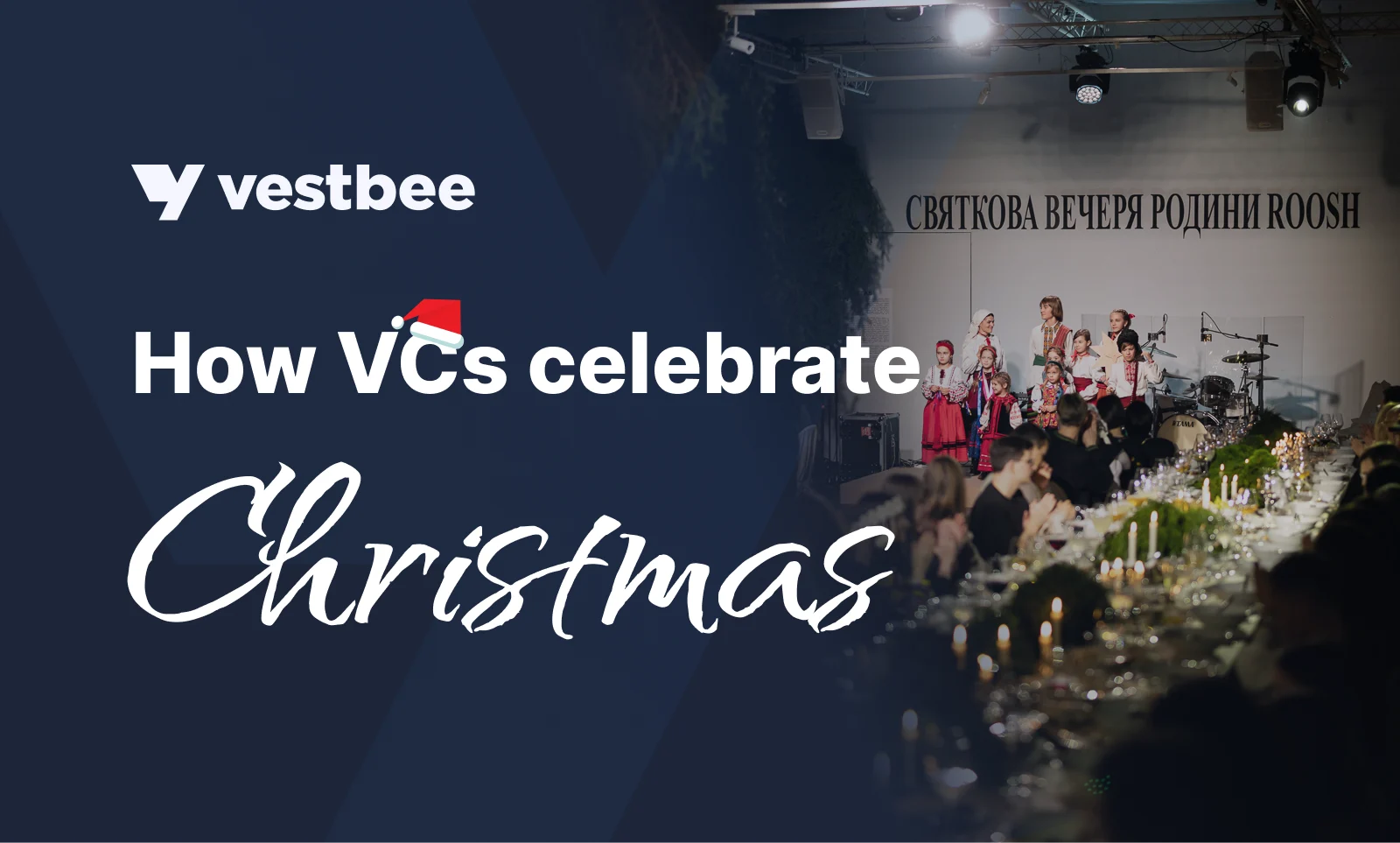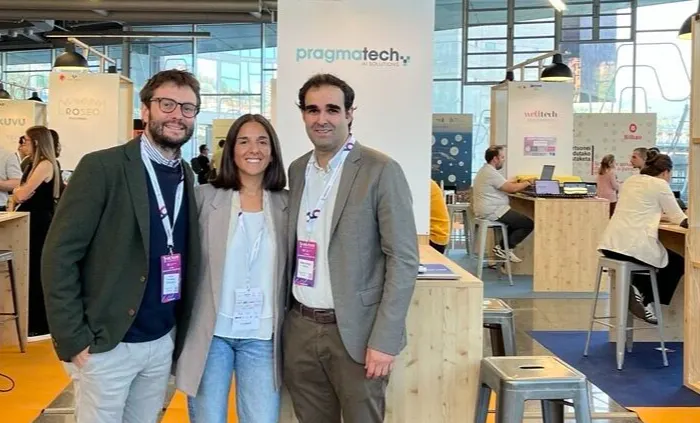IVP, established in 1980 in Silicon Valley, is one of the leading VC funds whose portfolio includes Discord, Klarna, and Slack, along with over 130 successful IPOs. In August 2023, it expanded its European presence by opening a representative office in London, leveraging its decade-long track record in the region. To further bolster the European startup ecosystem, the firm launched its 18th fund, securing $1.6 billion in investments, as shared by IVP’s Partner, James Black, during Vestbee’s CEE VC Summit in March.
During the summit, I talked to James, discussing the fund's focus on Series B through pre-IPO, the key attributes shared by successful founders, and advice on how entrepreneurs should structure their pitches to capture IVP's interest. Here, we present the main highlights from our discussion. You can watch the entire conversation below.
I'd like to start by discussing your background. You joined IVP in 2019. How did you get into the world of venture capital?
I always knew that I was interested in the intersection of finance and technology. I chose to study finance at university and thoroughly enjoyed it. However, I tend to get bored pretty quickly with uninteresting business models. So, for me, looking at tech and exploring the bleeding edge is exciting as it allows me to combine my interests while satisfying my desire to be an investor every day and put my money where my thoughts are.
Taking into account your four years at IVP, which deals are you extremely proud of, and why?
I'll highlight that I moved to Europe to open our London office about six months ago because I was actually investing much more in Europe than in the US, even though I was based on the West Coast. It's a lot more fun being based in Europe to invest in Europe than waking up at 6 am and hopping on Zoom calls.
In terms of companies, we're especially proud of those in Europe that we're a part of. Aiven was the first investment I made. It's a managed Database-as-a-Service company based in Helsinki, founded by Oscari Saarenmaa. He's a fantastic individual we've partnered with in every round since we first invested in the Series B back in early 2020. It's been a rewarding partnership to see how the company progressed over time, not just at a single point in time.
Another company we're proud of is Pigment, based in Paris, a financial planning and analysis tool, with an amazing user experience that really excites people to engage in financial planning. We partnered with them at the end of 2021, and across multiple rounds, we've seen their continued success.
A more recent investment is Kittl, a Berlin-based company in the graphic design space. I used to work at Canva, also in graphic design, and fell in love with both graphic design and the product-led growth business model.
You mentioned Finnish Aiven, a unicorn, and Paris-based Pigment, soon to be a unicorn. You are working with really successful founders. What common traits are you observing when partnering with them?
I don't think there's one specific model that founders must fit. But I do think there are one or two qualities that you have to have. One is intelligence.
That doesn't mean you have to have a PhD in machine learning and AI, but you must have street smarts to build a business. I'd say definitely all three of those founders, but probably all successful founders, have that. It's hard to pinpoint exactly, but it's that frame of mind of getting things done, shipping fast, and building something big.
This leads to the second big one, which is about ambition. All the founders that we're partnering with are building very high-growth companies, aiming for multiple billion-dollar businesses by the time they reach maturity. That does take a really high level of ambition, and it's not the path that every business or founder should go down, but for the founders that we're excited to partner with, they all have that kind of chip on their shoulder, excitement about building something really big.
Talking more broadly about the IVP approach, how does the fund, and here I will quote a phrase from its website, “spot iconic companies before the rest of the world appreciates them”? What specific metrics do you look for when considering investment opportunities?
We mainly focus on initial investments in Series B and Series C companies. We target companies that may not be widely recognized yet but have existing insider investors.
Building strong relationships with top early-stage investors is fundamental to our sourcing strategy.
In terms of metrics and stage, what gets us excited is really seeing companies with product-market fit, where the traction is accelerating. That's where we really feel like it's time to add additional capital to businesses, help them with the go-to-market and scaling, helping them go from maybe $3 to $5 million of ARR to $100 million plus over the next 2 or 3 years. Those are really the type of opportunities that we're looking for.
How does IVP assist the founders and the team in strengthening the startup's position in the market, considering the fund is investing in Series B and Series C rounds?
I think there are a lot of different ways that we lean in with companies. One thing that sets us apart from some other funds is that when you partner with IVP, you're getting everyone on our investment team and our broader platform team as well, not just the individual you interface with on a day-to-day basis. We really have a “no sharp elbows” culture, very friendly and fun to work in environments.
In terms of the platform we've built, we have a team focused on talent, especially on VP level and up talent. Since we're partnering with companies at Series B and Series C, often when they're building management teams, we find that's a really exciting time to help them hire VP level or C-suite candidates.
Additionally, we have centers of excellence around go-to-market, finance function, and marketing. These have been new additions to the fund in the last five or six years, and we're really excited about how they help founders.
Talking about the plans of IVP for this year, what industries or teams are you looking at, and what startups might pique your interest?
I think you'd be lying to yourself if you said you weren't excited about AI. That’s probably a consensus answer, but I do think it’s the truth. Most of the businesses that we’re seeing really accelerate this year have some component of AI. We're seeing it across the application layer, especially in audio and video.
Kittl is a great example in the graphic design space. It has hugely accelerated business through AI and the automated design motions that they're adding to the product. We're seeing it across infrastructure, absolutely. Some of that is infrastructure enabled by AI. For example, LLM Ops is a really exciting category right now that we've spent time on. There are also things in the infra layer that are more around automated development and automating parts of the software development lifecycle, which I think is quite exciting.
Then we've seen it even within our portfolio, across a digital health company that I work with called Hello Heart. They are using a lot of AI and machine learning to predict cardiac crises. They sell a connected blood pressure cuff, take readings, and then coach people on how to reduce their blood pressure. That product has been in the market for four or five years now, with extremely strong results in helping people reduce their blood pressure.
Pitches from startups at Series B and Series C might be more comprehensive and advanced. Could you please provide those startups who would like to raise investments with some advice on how they should organize their pitches to attract your interest?
Yes, I think it's a two-way street. The first thing I'd say is that the investor should come into the meeting excited to learn more. If an investor attends a meeting without having done any research on the company or understanding what the business is about, it’s a good sign for founders that they might not be a good fit.
So, founders should have ways of testing investors — have they done their homework and are genuinely excited about the company, or are they just taking a meeting for the sake of it?
The next thing I would say is that there are two core components of the business that you have to convey: What does the product do, and how are you going to sell it? Simplifying your pitch into these two aspects, especially at the later stage, is crucial. The market's fairly well understood. Team is important, but maybe you’re relying on a relationship with a founder at that point, versus kind of pitching your background or your experience.
So what you need in a Series B and Series C pitch is to convey why you think your product is special and how it’s different from what else is in the market. And then also how you're going to get it into customers’ hands and why the traction is compelling.







